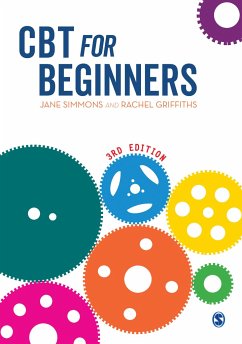This book provides the ideal starting point for trainees and practitioners needing a no-nonsense, clear guide to the basics of CBT. It will equip them with the knowledge and know-how, covering all the main theory and competencies to help them practice CBT effectively and confidently.
Focusing on case formulation, the authors show readers how to build a 'picture' of each client, using their case history to inform interventions. Features such as exercises, case dialogues, summary boxes, and further reading lists help to enhance and cement learning.
This third edition includes updated references, further reading and exercises, and new content on:
· The difficulties and drawbacks of CBT
· The differences between formal CBT and informal CBT
· The therapeutic relationship
· Further discussion of specific formulations
· Compassionate interventions with negative thoughts.
Focusing on case formulation, the authors show readers how to build a 'picture' of each client, using their case history to inform interventions. Features such as exercises, case dialogues, summary boxes, and further reading lists help to enhance and cement learning.
This third edition includes updated references, further reading and exercises, and new content on:
· The difficulties and drawbacks of CBT
· The differences between formal CBT and informal CBT
· The therapeutic relationship
· Further discussion of specific formulations
· Compassionate interventions with negative thoughts.
Easily accessible by students, and bringing professional therapists up to date with full and detailed practical guidance, Jane Simmons and Rachel Griffiths present both an introduction and the current state of the art application of CBT. In their third edition, the authors have achieved the very difficult aim of making a practitioner guide to the most effective evidence-based approaches a pleasure to read.
Dr David A Holmes 20170425
Dr David A Holmes 20170425

